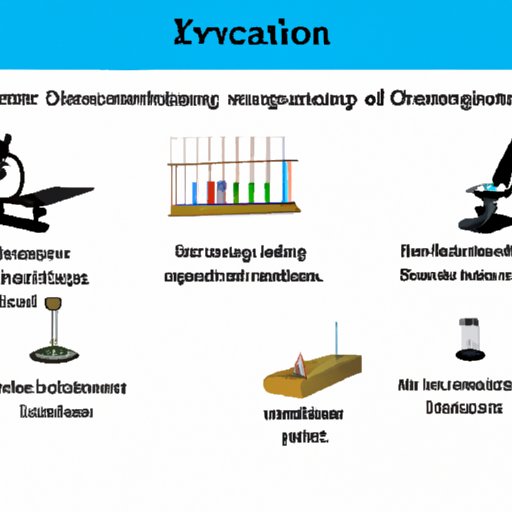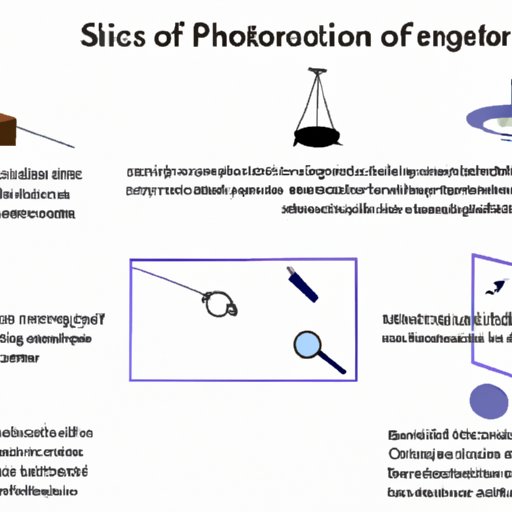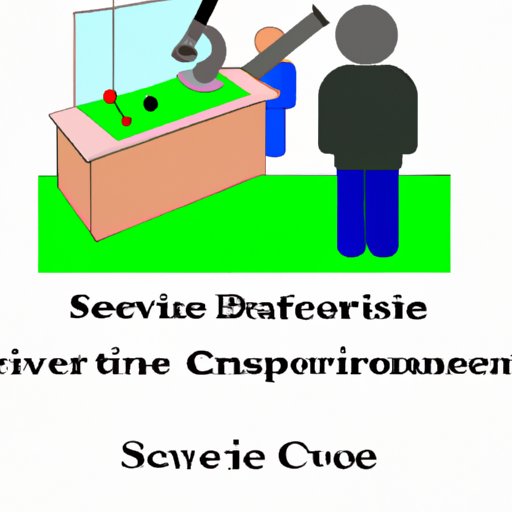Exploring the Meaning of ‘Observe’ in Science
Observation is an essential part of scientific research, as it is used to acquire knowledge about the natural world. But what does observe mean in science? In order to understand its significance in the scientific process, it is important to first explore the definition of observe and the different types of observations that are made in science.
Definition of Observe
The Oxford English Dictionary defines observe as “to take notice of or pay attention to (something); to watch attentively; to note or record facts or details about.” In science, observing involves collecting data and information through careful examination, recording, and measurement.

Types of Observations in Science
In science, there are two main types of observations: qualitative and quantitative. Qualitative observations are subjective and involve descriptions and perceptions, while quantitative observations are objective and involve measurements and numbers. Examples of qualitative observations include observing the color of a plant or the sound of an animal, while examples of quantitative observations include measuring the height of a tree or the temperature of an environment.

Using Observation to Advance Scientific Knowledge
Observation plays an important role in advancing scientific knowledge by allowing scientists to collect data, make observations, and draw conclusions from their findings. Through observation, scientists can observe patterns, trends, and relationships in the natural world and use this information to form theories and hypotheses about how the world works.
How Scientists Utilize Observation
Observation is a vital tool for scientists, who use it to study the behavior of organisms, examine the effects of different treatments, and analyze the properties of substances. For example, biologists may observe the behavior of animals in their natural habitat, while chemists may observe the reactions between different compounds. By carefully observing and recording their findings, scientists can gain valuable insight into the workings of the natural world.
Examples of Observations in Different Fields of Science
Observations are used in various fields of science to gather information and advance scientific knowledge. Astronomers observe distant stars and galaxies, geologists observe changes in the Earth’s surface, and physicists observe the behavior of particles. All of these observations help scientists better understand the universe and the laws that govern it.

How Scientists Utilize Observation to Make Discoveries
Observation is also a key component of the scientific process, as it is often used to make new discoveries. For example, when Albert Einstein observed the motion of light and formulated his theory of relativity, he used observation to make a revolutionary discovery. Similarly, when Charles Darwin observed the diversity of species on the Galapagos Islands, he was able to formulate his Theory of Evolution.
The Role of Observation in Hypothesis Development
In addition to making discoveries, observation is also integral to the development of hypotheses. When scientists observe patterns or trends in their data, they can use this information to form hypotheses about the causes of those patterns or trends. For example, if a scientist observes that certain plants are more successful in certain soil conditions, they may hypothesize that the soil conditions are responsible for the plants’ success.
The Importance of Making Accurate Observations in Science
Accurate observation is essential in science, as inaccurate observations can lead to incorrect conclusions and invalid results. As such, great care must be taken when making observations in order to ensure accuracy. This includes using precise measuring instruments, double-checking calculations, and avoiding bias.
Challenges of Making Accurate Observations
Making accurate observations can be challenging, especially in fields such as astronomy and particle physics, where objects and phenomena are too small or too far away to be seen with the naked eye. In these cases, scientists must rely on sophisticated equipment such as telescopes and particle detectors to make accurate observations.
Examining the Role of Observation in the Scientific Method
Observation is an important part of the scientific method, which is used by scientists to investigate the natural world and answer questions. The scientific method involves making observations, forming hypotheses, conducting experiments, analyzing data, and drawing conclusions. Each step of the scientific method requires careful observation in order to ensure accuracy and validity.
The Process of the Scientific Method
The scientific method typically follows the steps of observation, hypothesis, experiment, analysis, and conclusion. First, a scientist makes an observation and forms a hypothesis about what might be causing the observed phenomenon. Then, the scientist designs an experiment to test the hypothesis. After conducting the experiment, the scientist analyzes the data and draws a conclusion based on the results.

Examples of the Role of Observation in the Scientific Method
Observation is a key element of the scientific method and is used in each step of the process. For example, when making an observation, a scientist may use their senses or instruments to observe and record data. In the experiment stage, a scientist may observe the effects of different treatments on a subject. Finally, during the analysis stage, a scientist may observe patterns or trends in the data in order to draw conclusions.
Conclusion
Observation is an essential part of science, as it allows scientists to collect data and make discoveries. By carefully observing and recording their findings, scientists can gain invaluable insight into the workings of the natural world. Observation also plays a crucial role in the scientific method, as it is used in each step of the process to ensure accuracy and validity. Ultimately, observation is an invaluable tool for advancing scientific knowledge and making new discoveries.
(Note: Is this article not meeting your expectations? Do you have knowledge or insights to share? Unlock new opportunities and expand your reach by joining our authors team. Click Registration to join us and share your expertise with our readers.)
